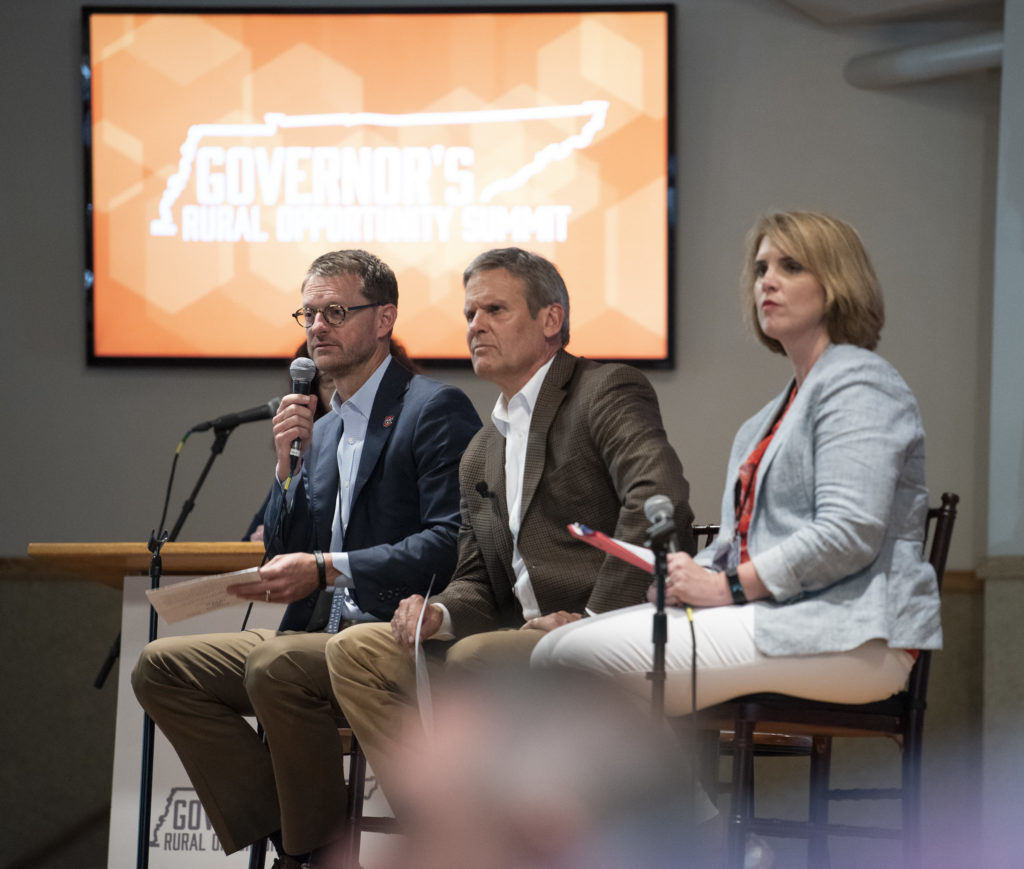
Trouble with transportation to and from a health care visit was the surprise takeaway from a round of health care listening tours over the summer. They were led by Tennessee Finance Commissioner Stuart McWhorter.
The five insights compiled by consulting firm Navigant also pinpointed untapped opportunities for telehealth, significant barriers caused by rural hospital closures, concern about social determinants of health and demands for more transparency in health care billing.
But transportation stuck out to McWhorter, who has a long background as a health care investor. The state’s Medicaid program, TennCare, provides rides to some patients, but McWhorter says they prove inadequate at times.
“We found in some cases where individuals, if they did utilize that, they had to plan all day around maybe just a physician office visit,” McWhorter says.
One company didn’t allow children in the van, so a patient with kids canceled her appointment.
“It wasn’t necessarily an issue of four wheels running down the road,” he says. “It was a schedule, and it was policies and rules around that particular transportation service. … You just have to go a little deeper into what are some of the issues that patients and people are dealing with here.”
During the listening tour, partnerships with ride-share companies were suggested as a better way to serve patients. Hospitals also blamed the Anti-Kickback Statute, which is meant to police inappropirate referrals, for keeping them from offering transportation to more patients.
The listening sessions were not open to the public or reporters, but the state’s consultants released a 75-page report on major themes Tuesday. McWhorter says the findings will become the basis for proposals from the Lee administration that will likely require legislative approval.
While the charge from Gov. Bill Lee was to look for ways to improve and expand access to care, the report does not contemplate expanding Medicaid to cover the working poor, as envisioned under the Affordable Care Act. McWhorter calls that “the easy button” that wouldn’t solve underlying problems with the health care system.
“This governor is about being creative and innovative and really making a lasting impression generationally,” McWhorter says.
To decide how to move forward, Lee has named a task force chaired by retired LifePoint Health CEO Bill Carpenter, whose company runs primarily rural hospitals. Other members of the task force include Dr. James Hildreth, president of Meharry Medical College; Kathie Krause, chief nursing officer at Vanderbilt Children’s Hospital; and Dr. Andrea Willis, chief medical officer at Blue Cross Blue Shield of Tennessee.
McWhorter is also leading the state’s effort to negotiate a Medicaid block grant, which would potentially yield as much as $1 billion dollars a year in new federal money for health care. Many of the items gleaned from the listening sessions appear in the block grant proposal as potential uses for the extra money, but McWhorter says the task force will move forward, whether or not a block grant is approved.


